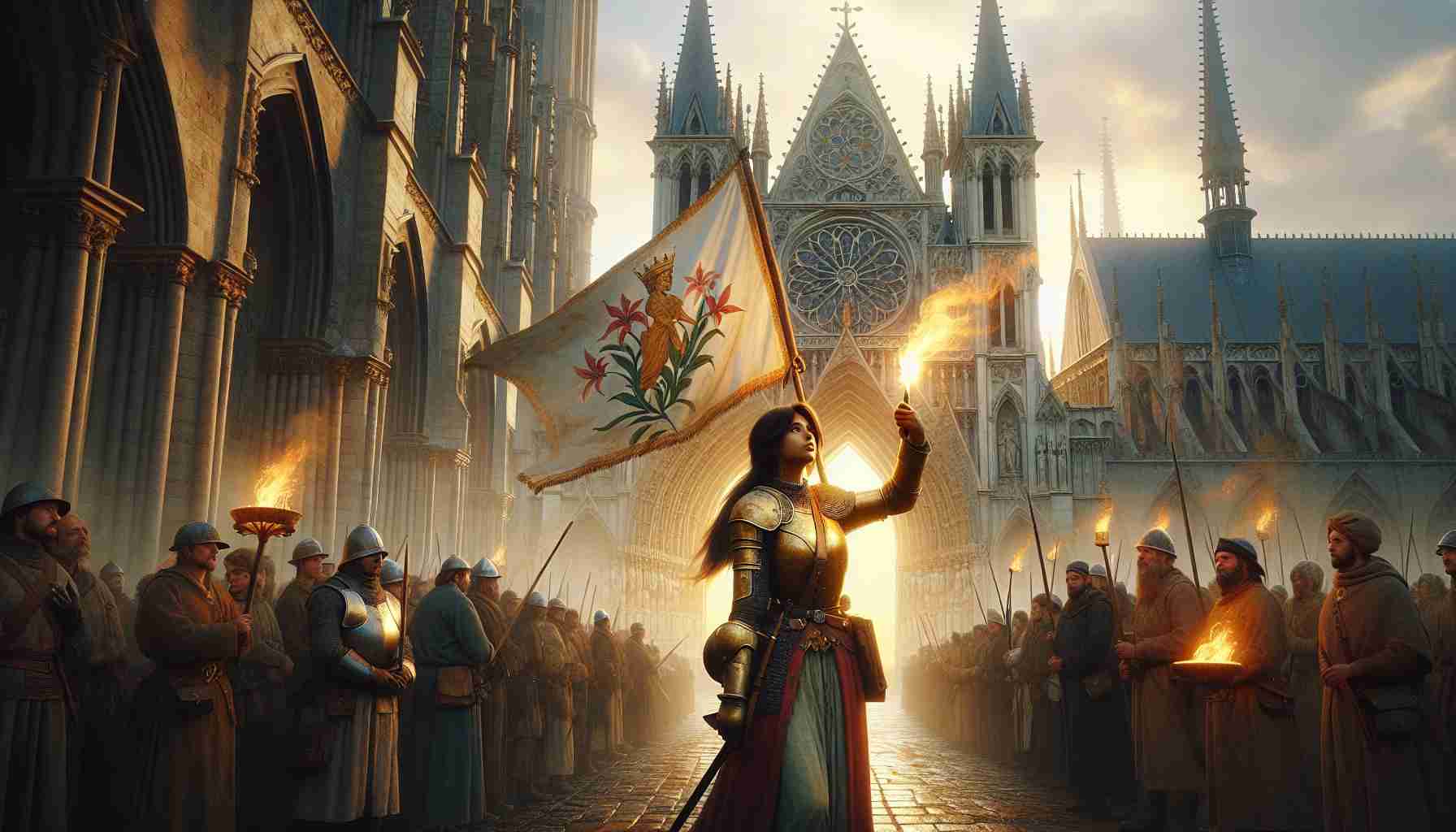

The morning sky over Orléans was veiled in smoke and ash, the embers of war having smoldered through the long nights of siege. Spring blossoms, starved of light, wilted in courtyards where voices no longer sang. For seven weary months, the English had gripped the city like a vice, their iron-clad knights blotting out hope with every trumpet call. French soldiers huddled behind ramparts, morale splintered like the shattered timbers of their garrison.
Yet amid the despair came a whisper—a girl was riding to save them. Not a baron’s daughter nor a seasoned commander, but a peasant from Domrémy, clad in borrowed armor and bearing no title save that which Heaven, she claimed, had spoken: Maid of God.
Joan.
Some scoffed. Others crossed themselves in awe. But when she entered Orléans on April 29, 1429, banners rippled as if the wind itself recognized her. She bore a white standard embroidered with lilies and Christ enthroned, a symbol as strange as it was radiant. Behind her, weary French soldiers found their posture straightening. Even battle-hardened captains began to look toward the heavens, not just the enemy lines.
Two weeks passed, and the English siege lines remained, a coiled snake around the city's neck. Then came morning on the 7th of May—fierce and laden with purpose. Joan awoke before the sun, heart burning with prophecy. “In God’s name, we must strike,” she said, and none dared oppose her conviction. Her eyes held fire uncommon to mortals, as though Isaiah’s words animated her very soul: “Fear not, for I am with you; be not dismayed, for I am your God” (Isaiah 41:10).
They marched on the Tourelles, the English-held bastion over the Loire—their strongest point, thought impregnable. Arrows shrieked through the morning mist, and stone clashed against stone as siege engines thundered. Joan pressed forward on foot, calling for her men to rise with her. A bolt struck her in the shoulder, and she collapsed. Blood soaked her armor, and for a moment, silence took her followers.
But before despair could take root, she stood again.
“Have courage,” she cried, lifting her banner high with her good arm. “The Lord has shown me victory is ours. This day, His hand delivers Orléans!”
Her voice, broken yet resolute, stoked a storm of valor. French swords ignited with renewed fury. By nightfall, the Tourelles burned, and the English fled across collapsing bridges. On the feast day of Michael the Archangel, May 8th, Orléans awoke liberated. Bells rang as if struck by angels.
They called it a miracle.
Later chronicles questioned how a seventeen-year-old girl turned the tide of a dying cause. Theologians debated her visions, skeptics dismissed them as madness. But no theory could erase what eyes had seen. Joan had led armies not with force of arms but force of faith—the kind that made kings tremble and cowards rise.
The cathedral of Sainte-Croix stood silent witness to the deliverance. Built atop Roman foundations crackling with time’s weight, its Gothic spires reached toward heaven as if in thanks. There, people gathered in awe, kneeling not for their salvation alone but in gratitude for a deliverance wrought through the least expected.
Whispers spread that Joan had heard Heaven’s voice beneath the cathedral’s vaulted arches. While history failed to preserve precisely what passed there, old stone held secrets well. Some said she spoke to Michael himself in dreams and that he pointed not just to battles, but to burdens of a greater war—the war for a people’s soul.
Though later taken, tried, and martyred, Joan’s flame never extinguished. The ashes cast in Rouen's square in 1431 did not scatter her witness. Instead, they settled into the soil of France, birthing courage anew. Almost five centuries passed before Rome spoke her final title: Saint. But long before canonization, the peasants and pilgrims had known it—her sainthood was not a gift of men, but a truth long sealed in Heaven.
Men die. Empires rise and break. Cathedrals crumble, and banners fade. But faith—faith summoned from obscurity like a trumpet blast in the fog—endures.
And on a May morning in 1429, against a war’s despair and a city’s dying breath, it was faith that won the day.